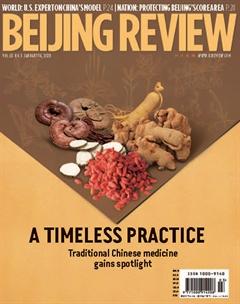Will More Exam Points Help Improve Student Physical Education?

Yunnan Province in southwest China recently released its reform of the high school entrance exam, where the total score allocated to physical education (PE) will be raised from 50 to 100 points, equal to the socalled “three major subjects” of Chinese, Math and English.
The reform will be implemented in the fall semester of 2020 for middle school students seeking to get into high school, which comprises grades 10-12. They will be required to take PE tests every year of middle school, in seventh, eighth and ninth grade, with the proportion of each years test set to 20 percent, 40 percent and 40 percent, respectively. The exams include two parts: a physical exam and a sports skills test. The former, accounting for 60 points, will be conducted according to the national standards of students physical health, while the latter, accounting for 40 points, will test skills in soccer, basketball, volleyball, table tennis, badminton, martial arts and boxing, among others.
Detailed rules, plans and related documents are yet to be released, but the announcement has already triggered a lot of discussion and debate. Some praise the increased emphasis on PE, while others are worried that it will become another victim of exam-oriented education, adding to students already heavy burden.
Fitness for funs sake
Xiong Bingqi (The Beijing News): Yunnan education authorities said the reason for the provinces PE reform is that “middle school is a critical period for the development of students physical and mental health, and regular exercise is needed to promote students health.”
PE has been incorporated into the high school entrance exam for years across the country, but Yunnan is the fi rst province to designate 100 points to this discipline.
Its not a secret that PE classes in middle schools are often commandeered by teachers of the three major subjects. Therefore from this perspective, the reform will effectively curb the theft of PE classes and bring the goal of students well-rounded development closer to fruition.
If students only spend time on what is to be tested in the entrance exam, however, this will distort the original intent of the reform. Students are supposed to develop interests as well as skills through this reform. Schools should design and conduct the new PE agenda in a way that lives up to this goal. For example, schools can set up sports teams or clubs so that students can develop sports skills through joining them. This will help to increase their interests and skills, and improve their fi tness, while at the same time, helping them get more points on the entrance exam. But for now, we still have to wait and see what effect Yunnans reform will have.
Dai Xianren (Nanfang Daily): Yunnan has taken the lead in raising the points of PE to 100 for the high school entrance exam. For years, PE has been regarded as expendable in middle school education and its downplaying is thought to be responsible for the continuing deterioration of student fi tness across the country.
Although much more attention has been paid to PE in recent years, classes are still mostly marginalized in practice. To give PE an unprecedented high status in the high school entrance exam will undoubtedly correct schools negligence of this discipline in Yunnan.
Some people are worried that the province has gone too far by giving PE 100 points, but this is a groundless worry. Physical ability is an important part of students overall qualities. To enhance sports education is conducive to students health and fitness. Yunnans reform is actually an overdue correction of the guidelines for middle schools. The gap between reality and what PE should be is too big and Yunnan is only trying to fi ll the gap.
However, its necessary to keep PE from becoming a subject that is abused. For example, some parents have already taken measures to pull strings through bribes and the like in order to have their children get high scores in their middle school PE tests, creating unfairness that needs to be curbed.
A level playing field
Li Yiling (Guangming Daily): Nowadays, its quite common to see PE classes used for other purposes. Often, they are requisitioned by teachers of the major subjects to give their classes. In Yunnan, a survey conducted in 2018 showed that every week, the hours devoted to math classes were 60 percent higher than they should be for the fourth grade, while only 61.2 percent of PE classes for this grade were given and the PE class rate for the eighth grade was 38.7 percent.
Given this dire situation, Yunnans reform aims to prevent PE from being taken over or marginalized by raising its point score in the high school entrance exam so that teachers and students alike will have to respect PE classes.
However, to raise PE to such a high status has inevitably sparked some debate and practices may actually deviate from the original intent of the measure. The basic reason that PE classes are hijacked to teach other classes is the low score requirement PE now has, so its sacrifi ce is inevitable. But is this the only way to encourage schools and students to respect PE?


